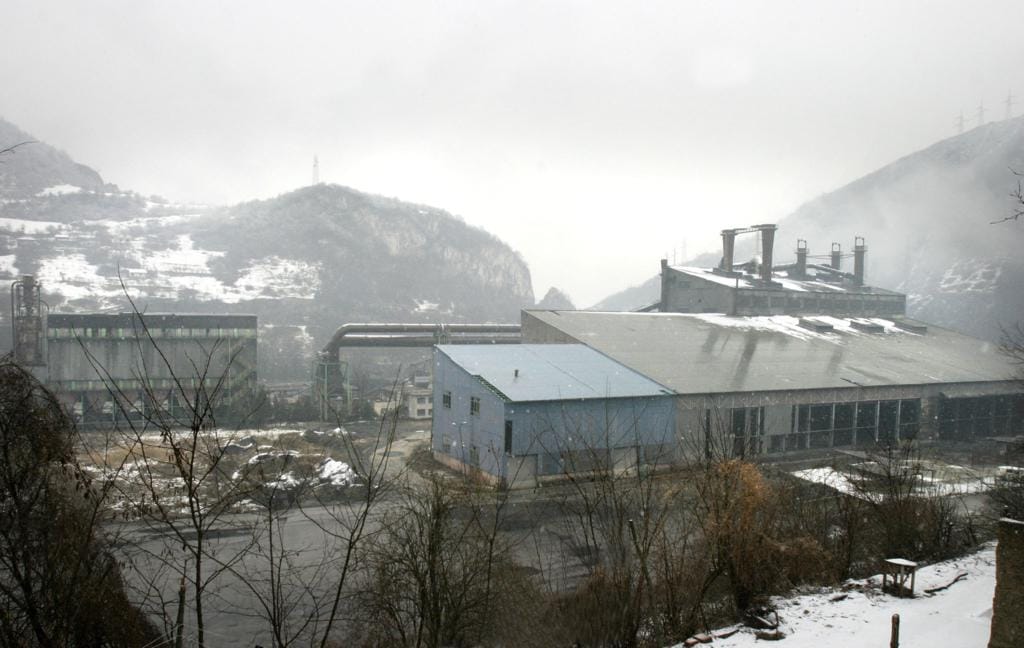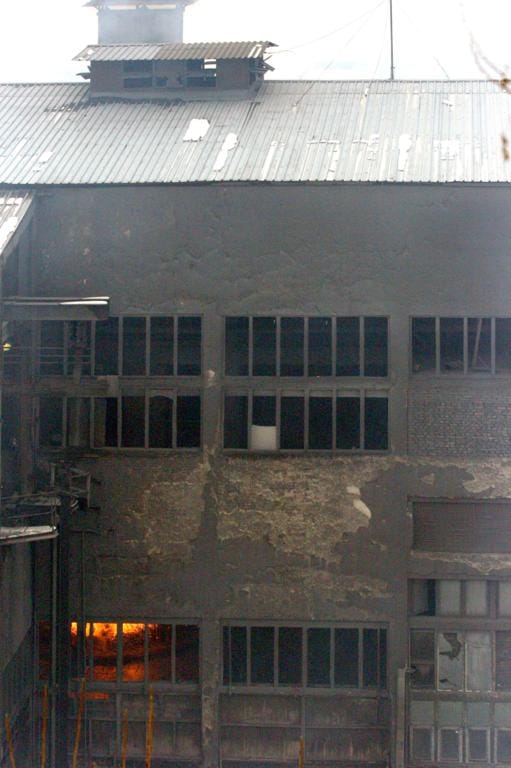Before he became head of Elektrobosna-N, Tomislav Mihalj set up the Federation Special Police Force and directed the State Border Service, but he could not bring order to the company’s out-of-control finances or make revenue stop disappearing.
So Mihalj called on judges and prosecutors, but to his great frustration, help never came and it may be too late now. A second attempt to auction off Elektrobosna-N’s assets in order to pay off a bank loan has been scheduled for May 16.
Over the past seven years, Mihalj was far from the only person to go to authorities about possible criminal conduct inside the silicon alloy firm and its affiliates. Nothing happened even though workers and company officials gave numerous warnings, including detailed accounts of what was wrong and where to look for evidence. Those warnings came from Edvard Sklenar, former president of the Jajce Municipal Union board, Ivo Džidara, a former director general of Elektrobosna, and Muhamed Mačak, a major Elektrobosna shareholder.
The complaints prompted repeated investigations by the financial police and by a Ministry of Internal Affairs department of the Federation of Bosnia and Herzegovina. These investigations showed there was evidence managers systematically extracted millions of KM from the company through a chain of phony companies they controlled forged documents and engaged in financial misconduct.
The financial police wrote up four criminal complaints against 15 persons and the FBiH police filed a criminal complaint that named 13 persons – including then Elektrobosna executives and two judges.

As a once-profitable company collapsed in financial ruin, six prosecutors at the municipal, cantonal, and state level failed to bring the case to court. Exactly why is unknown, but the evidence show that the case bogged down as personnel changed, bureaucratic structures changed and battles were waged over what office ought to handle the case.
Documents show that the case has passed through two municipal prosecutors from Jajce, Jasna Šimnović i Safija Cerić, and two Cantonal prosecutors from Travnik, Pero Barbić I Behaija Krnjić and up to a state-level prosecutor Jadranka Lokmić Misirača.
Fourteen months ago, a new deputy chief prosecutor of Srednjebosanski Canton in Travnik, Dragan Popović, took over the case. He says his investigation has intensified in the past several months and become international. Croatian prosecutors in Split have shown interest in the case.
The now-disbanded Department for Organized Crime of the Office of the High Representative declined to get involved in the Elektrobosna case either. Maurizio Coppola, head of the department in 2003, said then that his organization didn’t have jurisdiction to act.
FBiH police went to the state prosecutor’s office with its criminal complaint in March 2005, but state officials sent it back to the canton a month later. ‘This is not under our jurisdiction’ said Edita Pejović, a spokeswoman for the state office.
Ahmed Hadžipašić, FBIH Prime Minister, scoffed at the idea that his government could do anything about possible criminalities in Elektrobosna. ‘There’s nothing left for me to do but take a club and go about beating those punks’ he said, then added seriously ‘The only thing that falls under the jurisdiction and is in the government’s interest are Elektrobosna’s power debts of 22 million KM’ to Elektropriveda of Herzeg Bosna.
‘I do not want to comment on Prime Minister Hadžipašić’s statements’ said Chief federal inspector Zufer Dervišević, ‘but the FBiH Government should certainly have reacted and attempted to save EB. The government has to prevent all types of criminal activities, no matter if they are happening in private or state-owned companies. One cannot just allow that time itself takes care of everything.’
EB is a state company but the management at the time moved all assets to a subsidiary called Elektrobosna-N owned jointly by EB and a foreign investor connected to EB management.
As early as April 1999 Sklenar was going to Jajce police with complaints about irregularities at Elektrobosna.
Bare Pršlja the head of Jajce police, said his police had no jurisdiction, but they conducted a review and forwarded documents to the police of Srednjebosanski Canton criminal investigations department.
Sklenar later also went, without effect, for help to Marinko Jurčević, then FBiH prosecutor, and to OHR and to SFOR (Stabilization Force).
In an interview last year he said, ‘Everybody gave me promises, but nothing happened and I’ve turned to every and all institutions.’ He has since moved to Germany after a bomb was found on his front doorstep in Jajce last year.
Džidara, went to authorities after he was discharged as general director of Elektrobosna, in 2001, but was as unsuccessful in getting any action.
‘I’ve compiled a record of deliberate destruction of Elektrobosna from 1991 to 2001. I’ve testified three times in Jajce police against Elektrobosna Director Zlatan Ištvanić. The first time I reported on him was Oct, 13, 2001. This was sent from Jajce to Travnik police which put a stop to it. I have never received an answer’ he said.
Džidara, at 59, now lives in his father’s apartment and is jobless.
‘I get very upset and dismayed when I talk about Elektrobosna and the things that happened there’ he said.
Mačak said he’s been talking to cantonal level authorities for four years now. ‘They’ve responded two or three times, but between the lines one could read – what is it to you?’ said Mačak.

Mihalj said that he tried to instill work, order and discipline when he took over Electrobosna-N in 2004. He notes proudly that the firm produced 12,000 tons of ferrosilicon at the end of his first year, worth, he said, about 18 million KM.
Mihalj told authorities that the firm did not benefit and he found that ‘Matijaš and his buddies were closing all the ways that money could be followed.’
Matijaš, a Split businessman and major Elektrobosna stockholder, orchestrated his removal by early 2005. He went to Jurčević, to the Organized Crime Department of the state Prosecutor’s Office, to Katica Jožak Madžar, a cantonal judge in Travnik, and to Hadžipašić.
The judiciary and prosecutor, he said, ‘are extremely passive because they have not taken into account appeals of many persons.’
Inspector Dervišević also criticized Travnik prosecutors for lack of action. He said he was unable to discover from them what happened after his criminal reports were delivered to them.
The only correspondence they got was a notice in October 2002, two months after the federal finance police completed their report, that the cantonal prosecutor was rejecting the criminal complaint against cantonal Judge Vladimir Žuljević.
‘Clearing (of judge Žuljević) just after two months is telling’ said Dervišević.
Federal police got no response to an urgent letter demanding an explanation of why the judge had been cleared and what was being done about the others named in the report.
The financial police sent a letter to the state-level Independent Judicial Commission in late April 2003 asking it to review the work of Travnik cantonal prosecutor’s office. Again they received no reply.
Behaija Krnjić, now in the BiH prosecution office but a Srednjebosanski Canton prosecutor at the time, said that he rejected the allegations against the judge. ‘After consultations with federal prosecutor it was concluded’ he said, ‘that there were no irregularities in the work of Judge Žuljević. In order to prevent judge’s name being dragged through an indictment, the official decision was made to exempt Žuljević from the investigation.’
Dervišević said the decision was surprising because ‘without assistance from a judge, criminal acts could not have been done.’
In 2004, the commission was replaced in a reform of the legal justice system with the state office of the disciplinary prosecutor in the High Judicial and Prosecutorial Council.
Anđelko Marjanović, who became chief disciplinary prosecutor in Oct 2005, claims that there isn’t a single unsolved complaint or case from 2003.
Popović, the current prosecutor in Travnik on the case, said he would not comment about lack of action by his predecessors, but says he is moving forward on Elektrobosna.
‘Documents were seized last year at the request of the federal Tax Administration’ said Popović. ‘They are interested in taxes and they are obliged to check the documentation for any messing with taxes.’
‘I am now waiting for additional information from Croatia and their request for cooperation in that direction. So, this will probably come down to the cross-border criminal investigation.’ The Croatians are looking for connections between Elektrobosna officials and a Dalmatian metals company.
Some people are still skeptical.
‘Elektrobosna’ said Mihalj, ‘is the only project in my 35-year career that I was not able to follow through.’








